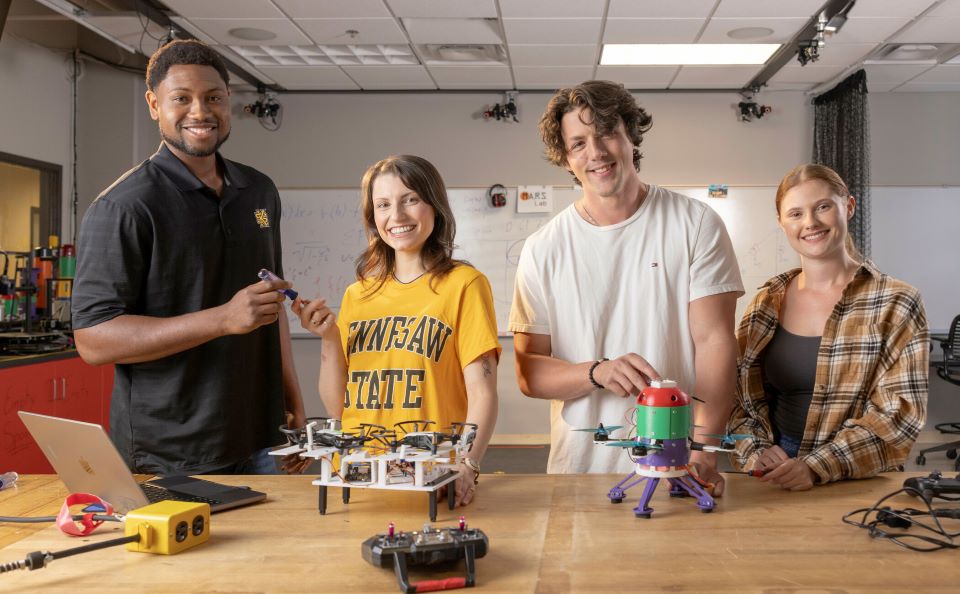Mechanical Engineering Technology Degree

-
Program Educational Objectives
Program educational objectives are broad statements that describe career and professional accomplishments that the program prepares graduates to achieve during the first few years following graduation. Graduates of mechanical engineering technology will:
- Be prepared for applied mechanical engineering positions that require specialized knowledge and skills in a particular area of mechanical engineering, such as mechanical design; manufacturing and automation; plant engineering; or heating, ventilation, air conditioning, and refrigeration (HVAC-R).
- Be aware of the impacts of their decisions on the health and safety of workers and on the environment, and of ethical and societal concerns.
- Solve problems that require critical thinking, use of teamwork, research, and communication skills.
- Understand the need for lifelong learning and continued professional development, including Professional Engineer registration.
-
Student Outcomes
Student outcomes describe the knowledge and skills acquired by students who complete the program. Students completing the mechanical engineering technology program will have:
- An ability to apply knowledge, techniques, skills and modern tools of mathematics, science, engineering, and technology to solve broadly-defined engineering problems appropriate to the discipline.
- An ability to design systems, components, or processes meeting specified needs for broadly-defined engineering problems appropriate to the discipline.
- An ability to apply written, oral, and graphical communication in broadly-defined technical and non-technical environments; and an ability to identify and use appropriate technical literature.
- An ability to conduct standard tests, measurements, and experiments and to analyze and interpret the results to improve processes.
- An ability to function effectively as a member as well as a leader on technical teams.

















